Eva Fu May 13, 2022
From The Epoch Times
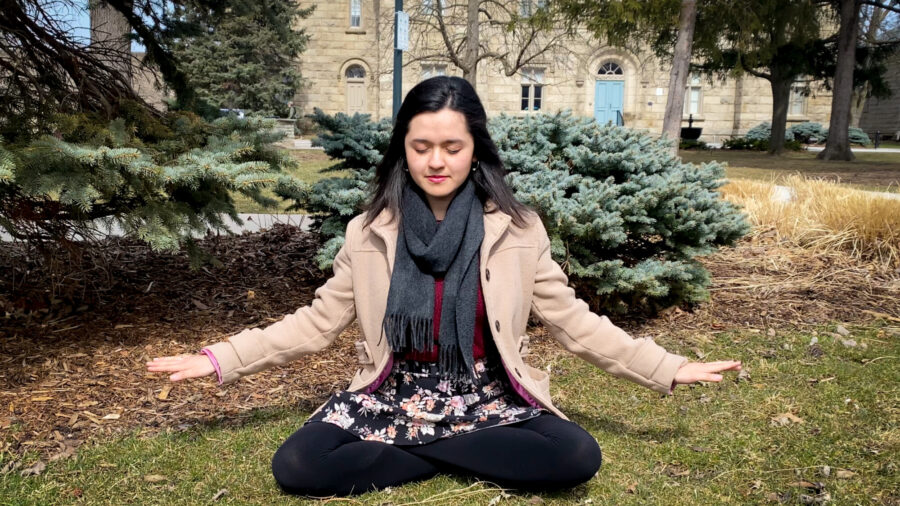
It was November 2020, nine months after then 22-year-old Carolina Avendano began living by herself, and eight months after her city Calgary, Canada, entered into a lockdown that shut schools and most businesses. She was utterly alone. The pandemic restrictions meant she couldn’t visit her sister despite living in the same city.
The prolonged isolation had caught Avendano in a crisis that she had largely kept to herself. Outwardly, she was the model of productivity—living independently, working two tutoring jobs, volunteering online, while completing a double degree in math and education. But inside, she had never felt more lost and empty.
“I knew I was out of balance in every sense of the word,” Avendano told The Epoch Times. Her body was sending alarm bells: she was underweight, she suffered from an eating disorder and headaches, and her period hadn’t come for more than a year for no apparent cause. She said little about her struggles to her family, who anxiously noted how she was getting thinner even as she insisted they were exaggerating.
A turning point came on a rare trip outside when Avendano randomly walked into a cafe and habitually glanced at the community board for yoga and meditation classes. There, a blue flyer showing a man meditating by the seaside caught her eye. Avendano had never heard about Falun Gong, a spiritual practice consisting of three core values, truthfulness, compassion, and tolerance, along with five slow-moving meditative exercises. But the online meditation workshop advertised on the flyer seemed to be exactly what she needed.
“What surprised me the most was that it was learned for free, by people from all walks of life,” she said, noting that she had seen yoga classes taught at over $1,000, a price she couldn’t afford. She registered for one session that weekend and kept practicing on her own.
The following Monday, she was surprised to find that her period had returned.
“I was excited. And I was scared,” she said. “I’m like, whoa, I don’t want to think it’s a coincidence. But it seems incredible.”
Beginnings
Avendano’s experience bears some resemblance to many who took up the practice in China in the 1990s when Falun Gong was spreading by word of mouth.
The spiritual discipline’s meditative exercises and teachings, rooted in traditional Chinese beliefs including Buddhist and Daoist ideas, seemed to resonate with a population that had been stripped of their traditional beliefs and culture during the upheaval of the Cultural Revolution launched by the Chinese Communist Party a few decades earlier.
On May 13, 1992, Li Hongzhi, the founder of the practice that is also known as Falun Dafa, introduced the practice to his hometown Changchun, an industrial city and capital of Jilin Province in China’s northeastern corner.
In November that year, 28 years before Avendano’s encounter with the practice, 36-year-old Mi Ruijing, a healthcare worker, was one of around 400 who went to a series of talks by Li in Beijing, during which he taught the meditative exercises and explained the practice’s moral teachings.
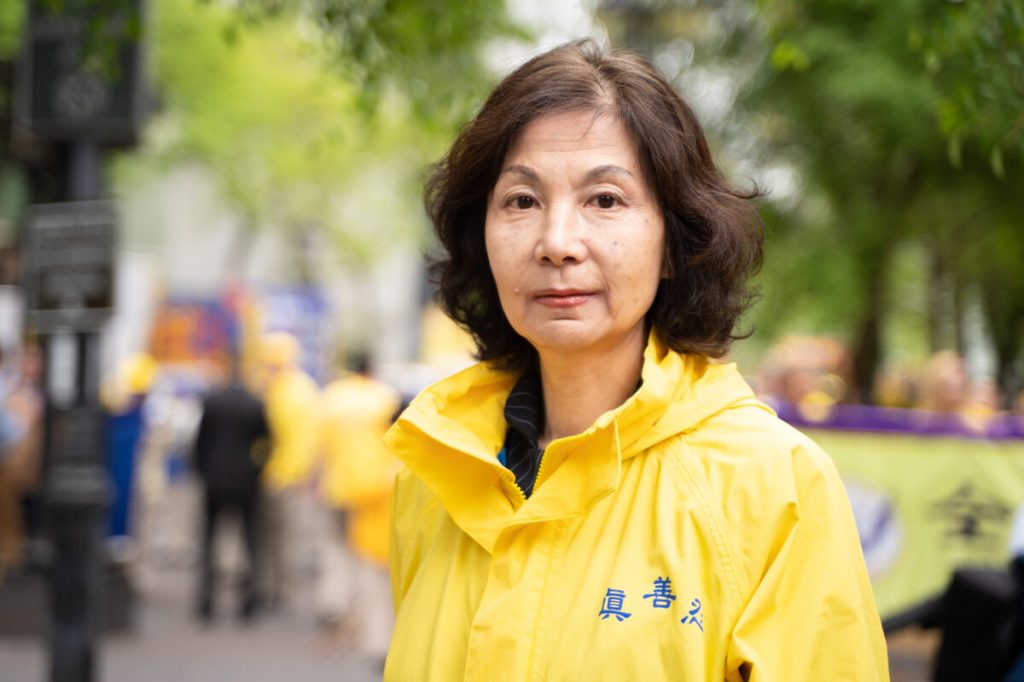
The class lasted for 10 days, and Mi felt a change from day one. On the way home, “it was as if I wasn’t walking but stepping on clouds. It was very light, very comfortable,” Mi, who now resides in the United States, told The Epoch Times.
But Mi was even more appreciative of the changes she was experiencing on the inside. Previously she had read many books about Daoism in search of the meaning of life.
The class brought answers to all of the questions that she had been asking for years. The excitement Mi felt was similar to a person long shut in a dark room suddenly being freed and allowed to see the light.
“I felt that I hadn’t actually lived for all these years and was really starting my life,” she remembered telling another friend.
During the next two years, Li would hold dozens more classes in China’s major cities, the largest ones attended by around 6,000, according to records compiled by Minghui.org, a U.S.-based clearinghouse for Falun Gong-related information. Mi attended more than 20 of them. By 1999, around 70-100 million Chinese would have taken up the practice, according to estimates at the time. Many were drawn to the discipline after seeing the physical and psychological improvements it brought to those around them.
Mi remembers vividly a moment when a friend accidentally burned three holes in her new outfit while helping to iron it. Mi was on the verge of lashing out before she checked herself. Instead, she told the woman that some stitches would conceal the damage and that she needn’t worry.
It was a small exercise of putting others first that she and others would be applying daily in keeping with the practice’s teachings, Mi said, adding that she would have done the same even if it were a stranger.
“If it was I who did it and someone chided me, how would I feel?”
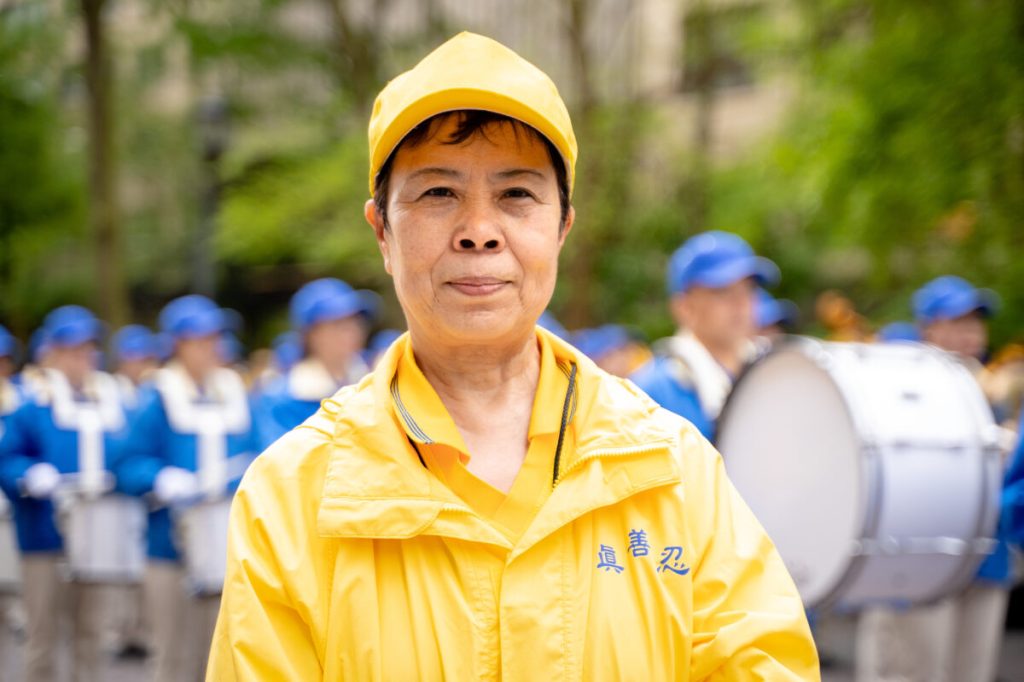
Transformations
In the summer of 1993, Liu Yan, an engineer in Beijing, waited for two hours for a ticket for Li’s class after hearing about it from a friend.
The classes were already becoming so popular that tickets were sold out months in advance. But when Liu called the hosting organization, a public university, she learned that they still had some tickets available. She took a day off from work, went to the university office one hour early, and was the first in line to snap up three tickets. After attending the class, she burned all the other spiritual books she had at home in a fire.
“I couldn’t put it into words, but I know that Falun Gong was the best,” Liu, who now resides in the United States, told The Epoch Times, adding that the practice’s three tenets, truthfulness, compassion, and tolerance, had stuck in her head.
Liu, who had a quick temper, credited the practice for making her a better wife and bringing an immense boost to her health. The bone spurs around her waist went away, and every year, her co-workers marveled at the clean health record she got during her workplace’s annual health checks. Her parents joined her too. For Liu’s mother, already in her 70s, her high blood pressure and throat cancer disappeared after she took up the practice, according to Liu.

A Crushing Persecution
Nearly one in 13 Chinese people would experience an abrupt turn in their lives by the end of the decade, when the Chinese Communist Party initiated an expansive campaign to crush their faith after perceiving the practice’s popularity as a threat to its authoritarian rule. The persecution has resulted in millions of adherents being sent to detention facilities, where they are subjected to torture, forced labor, and forced organ harvesting.
Mi and Liu were both forced out of their workplace, and received jail sentences of two and four years respectively for merely refusing to renounce their faith. After their release, they were a skeleton of their former selves. Both of Liu’s parents passed away while she was serving her jail term, and Liu wasn’t able to see either of them in their final moments.
In one so-called transformation center designed to coerce adherents into renouncing their beliefs, Liu was brutally beaten by a wooden mop handle on her legs that blisters the size of one’s palms swelled up on her lower legs and her inner thigh turned purple-black. The swelling kept growing for days despite a machine being put on her body to suck out the pus. She ended up having to get surgery to treat the battered legs. The two scars from the surgery remain to this day.
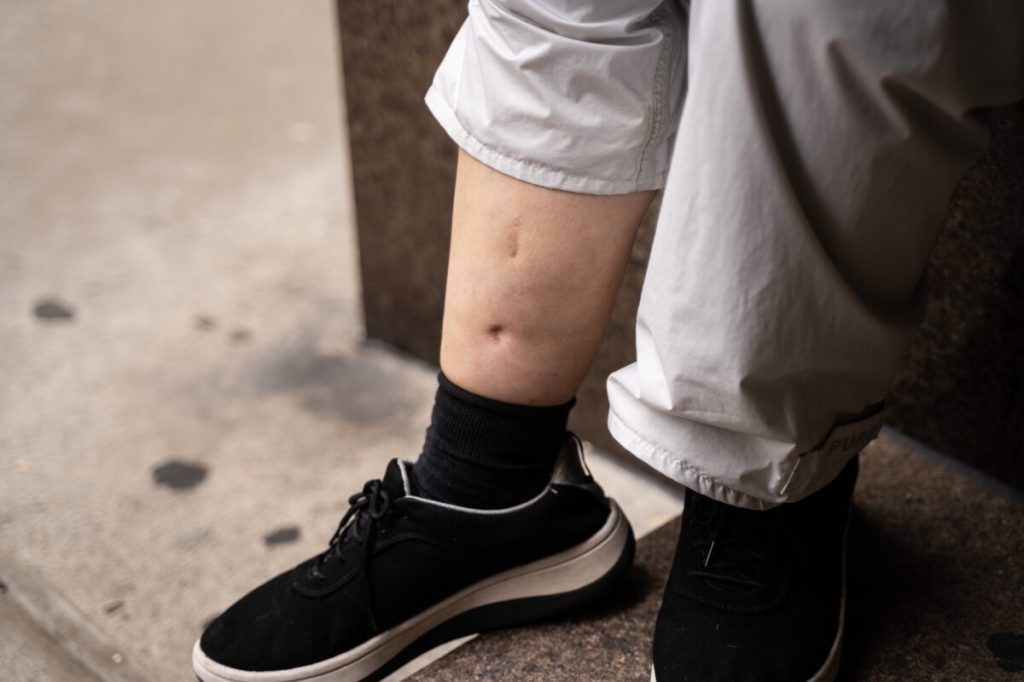
During her first imprisonment in a labor camp, Liu’s physical appearance changed so much that her husband, when finally allowed a visit, had to ask the guard standing by to confirm that the emaciated woman in front of him was his wife.
Mi developed scabies and stomach perforation while in detention. Three-quarters of her stomach had to be removed as a result. At the end of her term, Mi was literally “skin and bones,” she said.
Online Classes
It was through a recent movie “Finding Courage” that Avendano, who had begun reading Falun Gong books and joined a Falun Gong meditation group in downtown Calgary, caught a glimpse of the ongoing brutality in China. The courage and strength the adherents displayed by those incarcerated had inspired her and drew her closer to the practice, she said.
Since taking up the practice, Avendano said her health has improved and she now strives to be a better daughter to her parents, both of whom suffer from depression.
“I saw everything as an opportunity to bring up my character and I learned that I have to treat everybody with kindness,” she said.
The online workshop she participated in during the pandemic was initiated by a group of volunteers including Alexander Meltser, owner of an e-commerce business based in Florida and a practitioner of Falun Gong for over two decades.
“If you cannot go outside, go inside,” Meltser said, quoting a theme used in promotional materials for the online lessons.
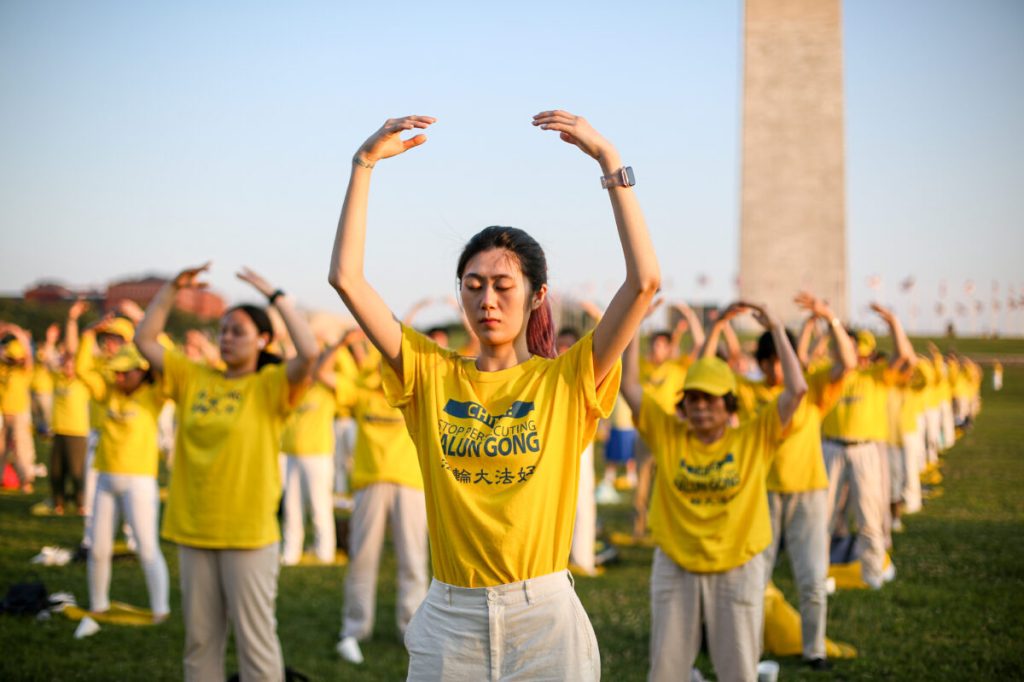
The webinar offers a private experience, with a host presenting slideshows followed by videos demonstrating the exercises. The host also responds to questions instantaneously on a live chat box.
They piloted the online classes in India and Russia in February 2020, as countries around the world began issuing lockdown orders. Encouraged by the number of registrants, the team started to launch globally. Their website now displays in 20 languages, and over 30,000 people in 45 countries have participated in at least one session.
The team now has 100 volunteers. Avendano is among them, brainstorming ideas to streamline the online experience for the attendees.
“What I value the most about the practice is that it’s open for everybody,” she said, noting that the Falun Gong teachings are available in Spanish, her first language.
“I think just the power of sharing such a beautiful practice with everybody at no cost, that really says a lot to [people].”
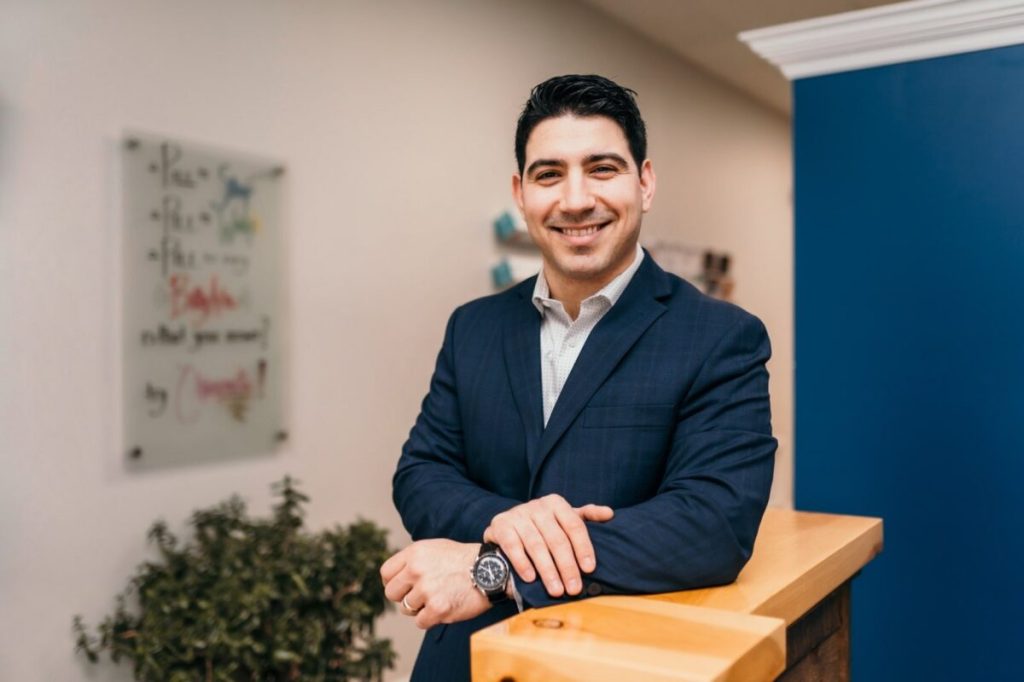
“This is a project where we can directly share with people the benefits that we’ve gotten from Falun Gong,” Joseph Gigliotti, a chiropractor who hosted the workshop that Avendano first attended, told The Epoch Times.
“Our mindset was, hey, there’s people at home doing nothing. They’re stuck at home, they can’t go outside. There’s a lot of mental health issues. People are really struggling, and they feel disconnected. This is just something that they can do to help them on their inner life.”
At the very end of the class, Gigliotti always asks if everyone got what they were coming for.
“It’s one of my favorite parts of the webinars to see how people answer that question. Because they’re very, very excited. They’re very happy,” he said. “A lot of people say I will continue on this journey.”
For himself, the principles espoused by the practice helped lift a “dark cloud of anxiety and depression” that had for years hung over his head, Gigliotti would sometimes share with the webinar attendees.
“It’s like we take a shower every day to clean the external part of your body. But I really wanted to clean the inside, I wanted to clean my heart and my mind.”
He called the eight years he had been with the practice “the most fulfilling years of my life.”
Editor’s Note: Dear readers, do you know that Falun Dafa, originally from China, is currently practiced by people in over 100 countries? But in China, since Jul. 20, 1999, Falun Gong is defamed, slandered and persecuted due to the Chinese Communist Party’s fear of Falun Gong’s rapidly growing popularity. Jiang Zemin, former head of the Chinese Communist Party (CCP), perceived the spiritual discipline’s growing popularity as a threat to the CCP’s atheistic ideology.
To learn more about the persecution Falun Gong practitioners are subjected to in China, visit http://faluninfo.net/.
For more information about the practice or to download Zhuan Falun, visit: www.falundafa.org. All books, exercise music, resources, and instructions are available completely free of charge.

